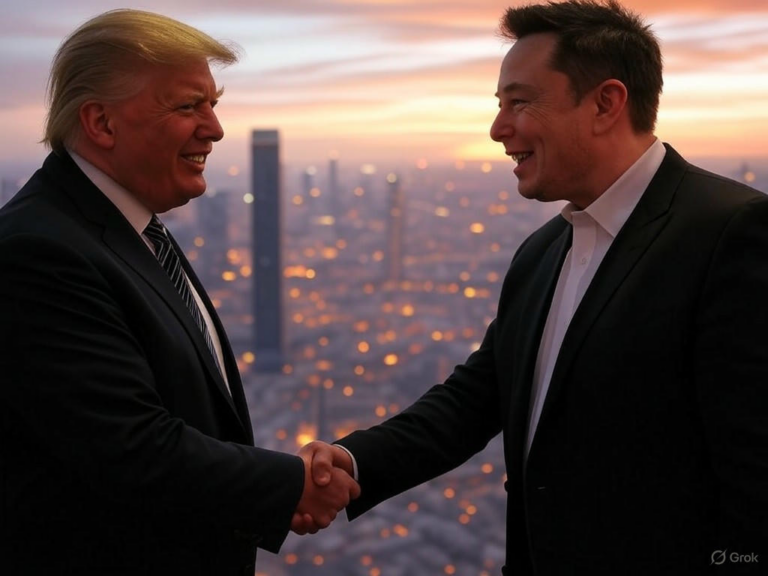
Universal Vaccines Investment: Trump Admin Allocates $500M for Development
Introduction
Have you ever wondered how the world could better prepare for the next big health crisis? The universal vaccines investment by the Trump administration marks a pivotal shift, with a bold $500 million allocation aimed at creating vaccines that protect against multiple virus strains, not just one. This move diverts funding from COVID-19-specific efforts toward broader, more adaptable solutions, potentially transforming public health strategies for the long term.
Understanding Universal Vaccines Investment
Universal vaccines investment focuses on developing shots that target core elements of viruses, offering protection across various strains. Unlike traditional vaccines, these aim for lasting defense against families of pathogens, like flu or coronaviruses. This approach could save resources and lives by reducing the need for yearly updates.
It’s exciting to think about how this investment might change the game—imagine a single vaccine shielding us from seasonal bugs and surprises like pandemics. Experts highlight that by funding research into stable viral components, we’re building a more resilient health infrastructure.
Key Advantages of This Universal Vaccines Investment
One major perk is broader protection, meaning a universal vaccine could fend off mutations that often outsmart current options.
- Broader Protection: These vaccines tackle diverse variants, making them ideal for unpredictable outbreaks.
- Durability: Expect longer immunity that lasts years, not months, potentially eliminating annual boosters.
- Pandemic Preparedness: This investment boosts our readiness, as seen in hypothetical scenarios where a universal flu shot could have eased the COVID-19 impact.
- Cost-Efficiency: By cutting down on frequent development cycles, it frees up funds for other health priorities—what’s not to like about that?
Breakdown of the $500 Million Universal Vaccine Project
The Trump administration’s universal vaccines investment includes a hefty $500 million to fast-track innovative programs. This funding pivot emphasizes sustainable immunization over reactive measures, drawing from lessons learned during the pandemic. Managed by the Department of Health and Human Services (HHS), it’s channeling resources to the National Institutes of Health (NIH) for cutting-edge work.
Two leading scientists are at the helm, bringing expertise in vaccine tech to drive progress. This isn’t just about throwing money at a problem; it’s a strategic bet on science that could yield big returns, as reports from reliable sources indicate it’s one of the largest non-emergency vaccine investments to date.
- The HHS is overseeing distribution, ensuring funds reach high-impact research.
- NIH experts are focusing on adaptable platforms, like those targeting common viral proteins.
- This universal vaccines investment stands out for its scale, potentially accelerating breakthroughs that benefit everyone.
Shifts in Public Health Policy from Universal Vaccines Investment
This universal vaccines investment has sparked important policy changes, including mandatory placebo-controlled trials for all new vaccines to boost safety and transparency. While this aims to build trust, it also raises questions about how it might slow down approvals during urgent times. Public health leaders are weighing these trade-offs, hoping for a balance that enhances overall system reliability.
For instance, imagine a world where every new shot is rigorously tested—this could ease vaccine hesitancy but might delay access in crises. Still, the potential for stronger immunization campaigns makes it a worthwhile gamble.
Potential Benefits for Public Health
- Stronger Immunization Campaigns: Universal vaccines could enable global rollouts that adapt to local needs, like protecting vulnerable communities year-round.
- Strategic Resource Allocation: By redirecting funds, this investment ensures we’re not just reacting but proactively building defenses.
- Mitigation of Vaccine Hesitancy: Greater transparency might encourage more people to get vaccinated—think about how clear data could sway doubters in your own circle.
Expert Perspectives on Universal Vaccines
Health pros have been pushing for universal vaccines investment for years, seeing it as a way to outpace threats like influenza or future coronaviruses. A leading NIH researcher shared, “Investing in universal vaccines could make our responses faster and more effective, turning the tide on infectious diseases.” This funding is fostering collaborations between government, academia, and private firms, which could spark real innovation.
But it’s not all smooth sailing—what if scientific hurdles slow things down? For example, pinpointing the right viral targets is tricky, yet overcoming it could mean fewer pandemics in our lifetime.
Challenges in Universal Vaccines Investment
- Scientific Complexity: Finding universal targets that work across strains is tough, but advancements in tech are making it more feasible.
- Regulatory Scrutiny: Those new trial requirements might extend timelines, though they ensure higher standards.
- Public Trust: Building confidence through open communication will be key—how can we, as a society, address misinformation effectively?
Comparing Universal and Traditional Vaccines
When you stack universal vaccines against traditional ones, the differences are clear and compelling. Traditional vaccines often target specific strains, leading to reactive strategies, while universal options promise proactive, long-term solutions. This comparison highlights why the current investment is so timely.
| Feature | Traditional Vaccines | Universal Vaccines |
|---|---|---|
| Target Scope | Single strain or variant | Multiple strains or families |
| Duration of Immunity | Seasonal or short-term | Long-term protection |
| Pandemic Response | Reactive development | Proactive and adaptable |
| Development Cost | Frequent updates needed | Upfront investment with savings |
| Approval Requirements | Standard trials | More rigorous, including placebo testing |
Implications for the Biotech Sector from Universal Vaccines Investment
The universal vaccines investment is buzzing in biotech circles, with ETFs like the Health Care Select Sector SPDR Fund watching closely for growth opportunities. This funding could boost stocks for companies innovating in vaccine tech, as public-private partnerships ramp up. If you’re an investor, this might be a signal to explore how such developments could shape portfolios.
For example, firms leading in mRNA or protein-based vaccines stand to gain, potentially attracting more capital. It’s a reminder that smart investments in health can yield widespread benefits—have you considered how this might affect your own financial strategy?
- Increased funding may lift biotech performance amid rising demand.
- Partnerships could accelerate R&D, creating new market leaders.
- Expanded pipelines might draw investor interest, fostering innovation waves.
Future Outlook: The Road Ahead for Universal Vaccines Investment
Looking forward, this universal vaccines investment could redefine how we tackle infectious diseases, paving the way for vaccines that handle everything from annual flu to global threats. Success here might mean more resilient healthcare systems and fewer disruptions to daily life. Key takeaways include the shift from specific to broad strategies, the emphasis on rigorous testing, and the potential to reshape global health.
What’s your take on how this could play out? Perhaps in a few years, we’ll see these vaccines in action, making the world a safer place.
Key Takeaways from Universal Vaccines Investment
- A $500 million federal commitment is steering resources toward universal vaccines, moving beyond COVID-19 focus.
- New policies mandate thorough trials, aiming for transparency and trust.
- This investment positions us to fight diseases more effectively, with lessons for future health policies.
Conclusion
In wrapping up, the Trump administration’s universal vaccines investment is a game-changer that could fortify our defenses against evolving pathogens. By prioritizing innovation and collaboration, we’re setting the stage for a healthier future—think about sharing your thoughts on this in the comments below. If this topic interests you, explore more on our site or connect with experts to stay informed.
References
- Seeking Alpha. “Trump administration RFK Jr. universal vaccine project.” Link
- TipRanks. “Trump Trade: RFK Jr. invests $500M in universal vaccine project.” Link
- KFF Health News. “$500 Million On Universal Vaccines In Shift From Covid-19 Funding.” Link
- TipRanks. “RFK Jr. invests $500M in universal vaccine project, WSJ reports.” Link
universal vaccines investment, universal vaccines, Trump administration investment, $500 million vaccine funding, vaccine development, public health policy, biotech sector impact, pandemic preparedness, vaccine innovation, infectious disease management







